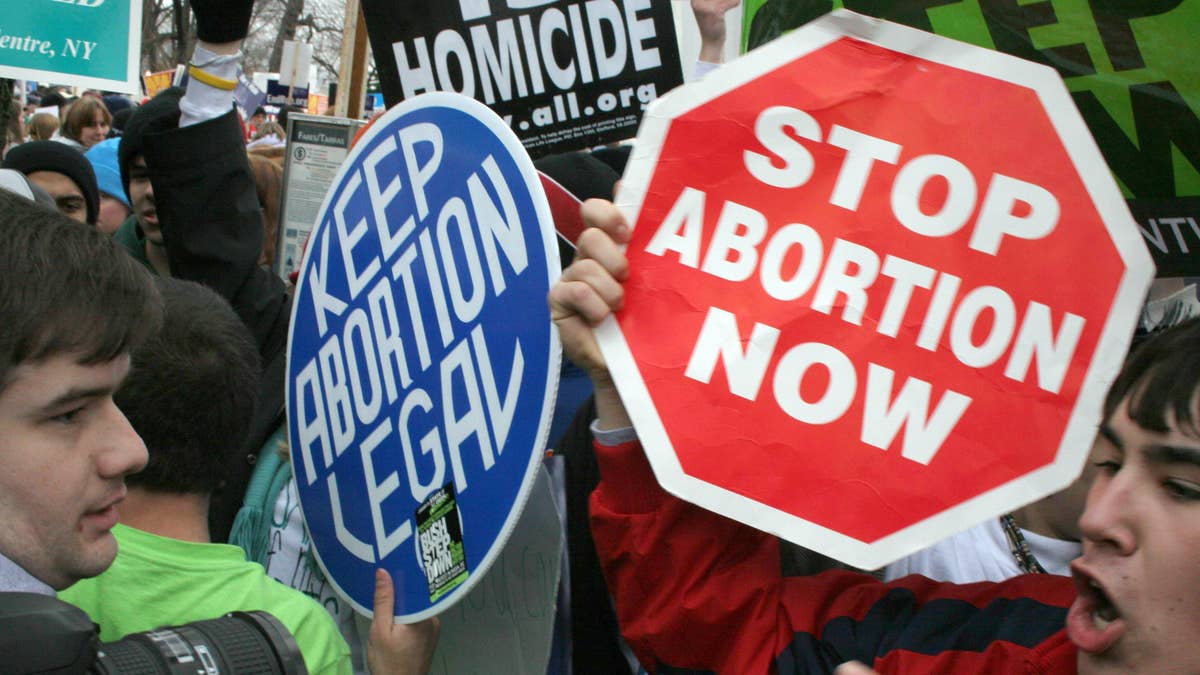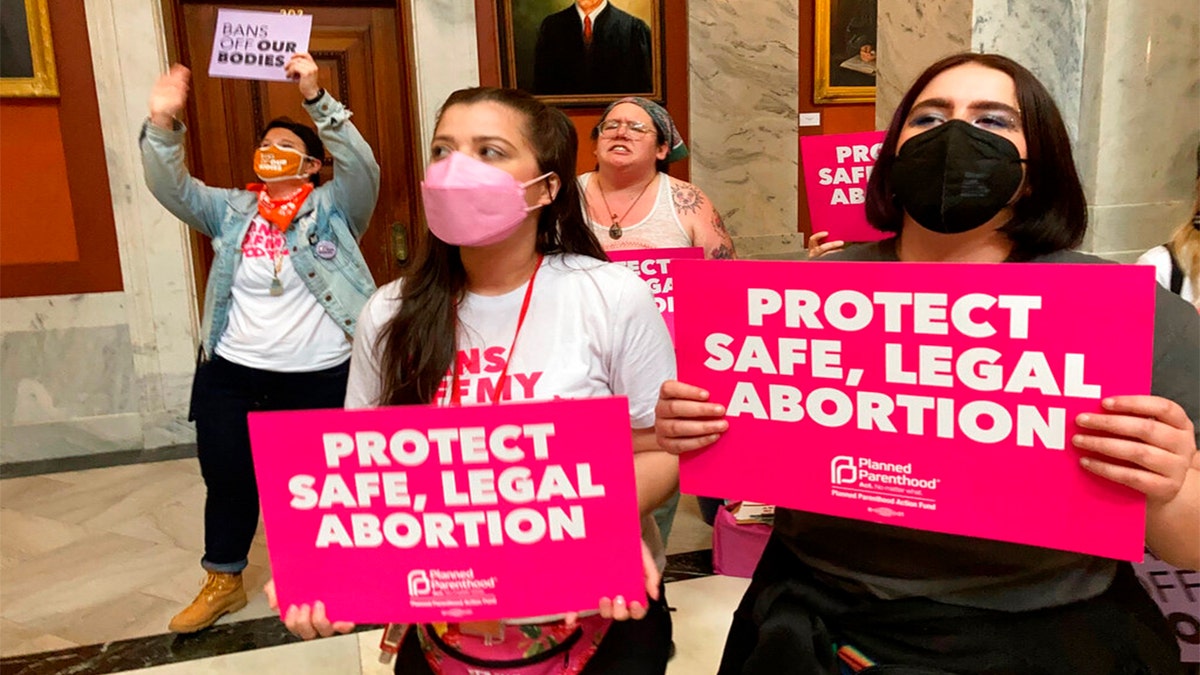Kristal Knight: It is 'naive' to think abortion alone will carry Democrats to victory
Democratic strategist Kristal Knight and IWF Center for Economic Opportunity director Patrice Onwuka debate which party currently has the upper hand as the midterms approach on 'Your World.'
After Supreme Court overturned Roe v. Wade in June, the power to place limitations on abortions returned to the states, and the issue will be on the ballot in five states this November — in California, Michigan, Montana, Vermont, and Kentucky.
In Kentucky, abortion is currently illegal at the moment of fertilization, after a trigger-law that went into effect following Roe's reversal allowed the state to place an immediate ban on abortion.
The ballot initiative in Kentucky would cement the state constitution to not allow abortions or public abortion funding. Registered voters in the Bluegrass State will vote to either amend or abolish the state's law banning abortions.
Voters in Vermont will see Article 22 on their ballots this fall, which if passed would amend the state's constitution to continue providing abortion access.

This election cycle, Democrats spent around $124 million campaigning on abortion. (Karen Bleier)
Vermont's current law allows no limits on abortion. "The State of Vermont recognizes the fundamental right of every individual who becomes pregnant to choose to carry a pregnancy to term, to give birth to a child, or to have an abortion," the state law reads.
In Montana, the "Born-Alive Infant Protection Act," if passed, would acknowledge that infants born alive, including those born alive after an abortion, are legal persons. The law would also penalize doctors who do not treat them as a living person and take the required, necessary actions to "preserve the life of a born alive infant."
The legislation defines "born alive" as a human infant who "breathes, has a beating heart, or has definite movement of voluntary muscles, regardless of whether the umbilical cord has been cut and regardless of whether the expulsion or extraction occurs as a result of natural or induced labor, cesarean section, induced abortion, or another method."

Abortion became a rising midterm issue after the Supreme Court Dobbs ruling. (Bruce Schreiner)
In California, where pro-abortion Gov. Gavin Newsom, D-Cali., is seeking a second term, abortion is currently legal up until the point of fetal viability or after in the case that it would protect the health or life of the mother.
Californians will see Proposition 1 on their ballots, an initiative that would amend the state's constitution to allow abortions without any interference from the state.
In Michigan, it is currently legal to get an abortion up until the point of viability. Michigan Proposition 3 would amend the state constitution to allow to abortions up until around the fifth month of pregnancy.
The states gubernatorial race is under the spotlight this fall, pitting Democratic Gov. Gretchen Whitmer against Trump-backed GOP nominee Tudor Dixon. The pro-abortion Democrat has made the topic a focal point of her campaign, releasing several campaign ads that target and attempt to smear her pro-life opponent.

Incumbent Michigan Gov. Gretchen Whitmer, left, and Republican pro-life advocate Tudor Dixon, right. (Erin Kirkland/Bloomberg, Nic Antaya/Bloomberg)
"There is not a universal consensus on exactly when a fetus is considered viable because every situation is unique and there isn’t a magic number when exactly a child born would be expected to survive without emergency treatment other than full-term at 38 to 40 weeks of pregnancy," Dr. Nicole Saphier, radiologist and Fox News Medical Contributor, told Fox News Digital. "However, it is generally accepted that with access to advanced resuscitation efforts and specialized neonatal care, a fetus is considered viable around the 22nd week of pregnancy. That being said, my close friend unexpectedly had her little boy at 21 weeks."
CLICK HERE TO GET THE FOX NEWS APP
Dr. Janette Nesheiwat, Fox News Medical Contributor, also affirmed that fetal viability usually occurs before the 24th week of pregnancy.
"It's usually approx 23 weeks, as early as approx 22 1/2. This is because the lung tissue is not fully developed and may not be viable outside of the womb to breathe independently," Nesheiwat said.






